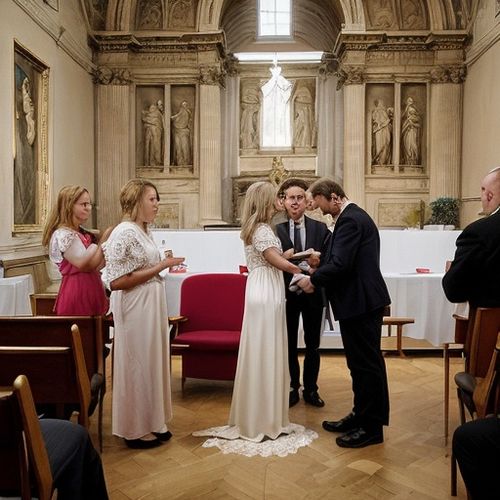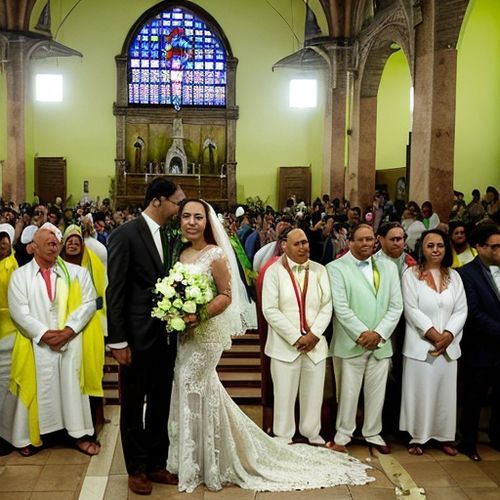When it comes to the division of marital property, Germany has a well-defined legal framework that differs significantly from systems in many other countries. The German approach is rooted in the principle of equal partnership, but the practical application can be complex depending on the marital property regime chosen by the couple. Understanding how assets are divided in Germany requires a closer look at the default system, alternative arrangements, and the role of prenuptial agreements.
The Default Regime: Community of Gains
Under German law, the default marital property regime is known as the "community of gains" (Zugewinngemeinschaft). This system does not create a shared pool of assets during the marriage but instead comes into play if the marriage ends through divorce or death. During the marriage, each spouse retains ownership and control over their individual assets. However, upon dissolution, the increase in value of each spouse's assets acquired during the marriage is calculated and then divided equally.
This means that if one spouse significantly increased their wealth during the marriage while the other did not, the financially stronger spouse may be required to compensate the other. The calculation can become intricate, especially when dealing with businesses, inheritances, or gifts received during the marriage. Courts often rely on financial experts to determine the exact value of the gains to ensure a fair division.
Alternative Arrangements: Separation of Property and Community of Property
Couples in Germany can opt out of the default system by choosing either a "separation of property" (Gütertrennung) or a "community of property" (Gütergemeinschaft) arrangement. The separation of property regime ensures that each spouse keeps full control over their assets before, during, and after the marriage. This is often chosen by entrepreneurs or individuals with significant pre-marital assets who wish to avoid potential complications in case of divorce.
The community of property regime, on the other hand, merges most assets into a shared pool owned jointly by both spouses. This system is relatively rare in Germany, as it requires explicit agreement and can lead to complications if the marriage ends. It is more common in situations where both spouses actively contribute to a family business or shared investments.
The Role of Prenuptial Agreements
Prenuptial agreements (Ehevertrag) are legally binding in Germany and allow couples to customize their property arrangements. These agreements must be notarized to be valid and can specify how assets will be divided in case of divorce or death. However, German courts have the authority to override certain clauses if they are deemed unfair or if they place one spouse in financial hardship. For instance, a prenup that entirely excludes one spouse from any financial gain may be partially or fully invalidated.
Prenuptial agreements are particularly useful for international couples, where one or both spouses have assets or business interests abroad. They can help avoid lengthy legal battles by clearly defining which country's laws will apply to the division of property.
Divorce and Property Division: Practical Considerations
When a marriage ends in divorce, the division of property can become contentious, especially if one spouse suspects the other of hiding assets. German courts take a strict approach to full financial disclosure, and failure to provide accurate information can result in penalties. Additionally, the process can be delayed if there are disputes over the valuation of certain assets, such as real estate or privately held companies.
Another important factor is the treatment of pensions. In Germany, pension rights accumulated during the marriage are considered part of the marital property and are subject to division. This can be a significant point of negotiation, particularly for older couples who have built substantial retirement savings.
International Marriages and Cross-Border Complications
For binational couples, property division can become even more complex. Germany follows the principle of "universal community of property" for international marriages unless a prenuptial agreement specifies otherwise. This means that assets located outside Germany may still be subject to German marital property laws. However, enforcing German rulings in other countries can be challenging, especially if local laws conflict with German principles.
Legal experts often advise international couples to draft prenuptial agreements that explicitly state which jurisdiction's laws will govern their marital property. This can prevent lengthy and costly legal disputes in multiple countries.
Conclusion: A Balanced but Complex System
Germany's approach to marital property division strikes a balance between protecting individual assets and ensuring fairness between spouses. While the default system provides a clear framework, couples have the flexibility to customize their arrangements through prenuptial agreements. However, the complexity of valuations, international considerations, and potential disputes means that professional legal advice is often essential to navigate this area successfully.

By Sophia Lewis/Apr 19, 2025

By Joshua Howard/Apr 19, 2025

By Laura Wilson/Apr 19, 2025

By James Moore/Apr 19, 2025

By Eric Ward/Apr 19, 2025

By Ryan Martin/Apr 19, 2025

By Elizabeth Taylor/Apr 19, 2025

By Samuel Cooper/Apr 19, 2025

By Benjamin Evans/Apr 19, 2025

By Christopher Harris/Apr 19, 2025

By Olivia Reed/Apr 19, 2025

By Megan Clark/Apr 19, 2025

By Michael Brown/Apr 19, 2025

By William Miller/Apr 19, 2025

By Sarah Davis/Apr 19, 2025

By Joshua Howard/Apr 19, 2025

By Ryan Martin/Apr 19, 2025

By Eric Ward/Apr 19, 2025

By Jessica Lee/Apr 19, 2025

By David Anderson/Apr 19, 2025